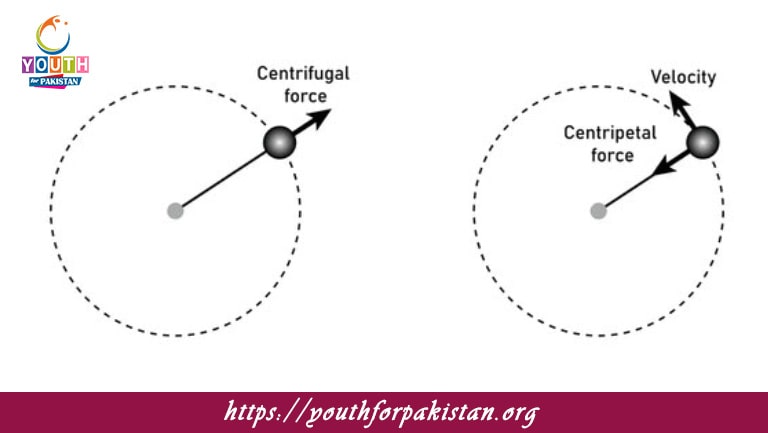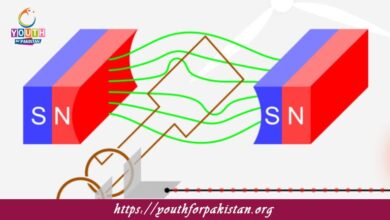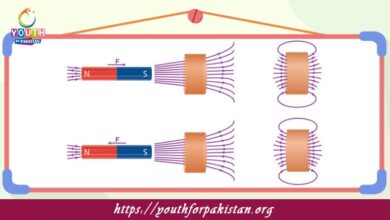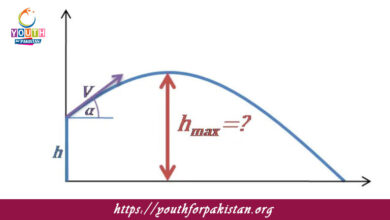Centripetal Force MDCAT Quiz with Answers

Centripetal Force MDCAT Quiz is the force that keeps an object moving in a circular path, directed towards the center of the circle. In essence, it is important in circular motion; otherwise, due to inertia, the object would continue moving in a straight line. It is, therefore, very important for MDCAT students to understand the concept of centripetal force in order to solve problems involving rotational dynamics and forces involved in circular motion.
Centripetal Force in Practice
Centripetal force is not an independent force; instead, it is a result of other forces like tension, gravity, or friction acting toward the center of the circular path. For example, in the case of a car turning around a curve, the force of friction between the tires and the road acts as the centripetal force. In orbital motion, the force of gravity existing between a planet and its satellite provides the centripetal force. MDCAT students must be well-acquainted with examples where these forces act to keep the motion circular in various real-life scenarios. This understanding is critical to the solving of related problems in the MDCAT Quiz.
MDCAT Quiz: Centripetal Force Questions
Questions in the MDCAT Quiz involving centripetal force normally ask one to find out the force required for an object to move in circular motion, given the velocity and mass of the object, and the radius. For instance, a problem might give the velocity of a car, its mass, and the radius of the curve it is going around, asking for the centripetal force. Or the student might be asked to find the velocity or radius that would produce a certain centripetal force. To answer these types of questions, a strong understanding of the formula for centripetal force and the ability to apply it to different situations are important.
- Test Name: Centripetal Force MDCAT Quiz
- Type: Quiz Test
- Total Questions: 30
- Total Marks: 30
- Time: 30 minutes
Note: Answer of the questions will change randomly each time you start the test, once you are finished, click the View Results button.
Free Flashcards for Centripetal Force
Free flashcards focused on centripetal force are a great study resource for MDCAT students. These flashcards can include essential formulas, practice problems, and examples illustrating how centripetal force works in different scenarios, such as friction, gravity, or tension. Reviewing these flashcards regularly will help students strengthen their understanding of circular motion and improve their problem-solving skills, preparing them to confidently tackle centripetal force-related questions in the MDCAT Quiz.

What is the centripetal force acting on an object moving in a circle with radius 4 m, velocity 6 m/s, and mass 2 kg?
18 N

What is the centripetal force if the velocity is doubled and the radius stays constant?
It increases by a factor of 4

If the velocity of an object is halved, what happens to the centripetal force?
It decreases by a factor of 4

What is the centripetal force of a 10 kg object moving with a velocity of 15 m/s in a circle with a radius of 5 meters?
45 N

What is the centripetal force for a 5 kg object moving at 4 m/s in a circle with a radius of 2 m?
10 N

What is the centripetal force of a 3 kg object moving at a velocity of 6 m/s in a circle with radius 3 meters?
6 N

What is the centripetal force of an object with a mass of 2 kg moving at 8 m/s in a circle with radius 2 meters?
32 N

What is the relationship between centripetal force and speed?
Directly proportional to the square of speed

What is the centripetal force for a 5 kg object moving in a circle of radius 10 m at a speed of 10 m/s?
5 N

What happens to the centripetal force if both mass and velocity are doubled?
It increases by a factor of 4

What is the centripetal force for an object with mass 1 kg, velocity 2 m/s, and radius 3 meters?
0.67 N
Experience the real exam environment with our expertly designed collection of over 25,000 MCQs MDCAT Mock Tests.





